The Importance of Foreign Language for Front Office Staff in Hotels
Info: 10217 words (41 pages) Dissertation
Published: 26th Aug 2021
Tagged: LanguagesHospitality
Abstract
The paper addressed the subject of foreign language in hotel management under the scope of their significance for the Queenstown hotel industry. A mixed method design of data collecting was applied to collect both qualitative and quantitative data. Bilingual and Multilingualism offer a competitive advantage to both businesses operating in the global hotel market as well as people who pursue a career in it. The data presented herewith derives from both qualitative and qualitative research that targeted managers and frontline staff of hotels operating in Queenstown, New Zealand.
The key finding indicates a contradiction between theoretical acknowledgement of the importance of foreign language in hotel management and practical performance, particularly in regard to fluency in foreign language, in recruiting and selecting employee. The paper aims to identify an importance and benefit of hiring foreign speaker staff for communicate with non-English speaker customer in the hotel.
Introduction
Background
According to record number of International travel and migration to New Zealand demonstrated in September 2017 compared with September 2016 visitor arrivals were up to 407.744 or 0.6 percent that indicated in figure 1 (International travel and migration: February 2017, 2017, para.1) One of the New Zealand’s most popular visitor destination is Queenstown. Queenstown is well used to visitors with international accents, so not only expect great visitor facilities but also big crowds, especially in summer and winter. Autumn and spring are slightly quieter in other city, but Queenstown is true year-round destination (Queenstown – Lonely Planet, n.d., para. 3). Queenstown is becoming even more ofan international visitor magnet, with more than 1.8 million international visitor nights recorded in 2013 by statistics New Zealand – a record high for the hotel and resort (Bryant, 2014, para. 1)
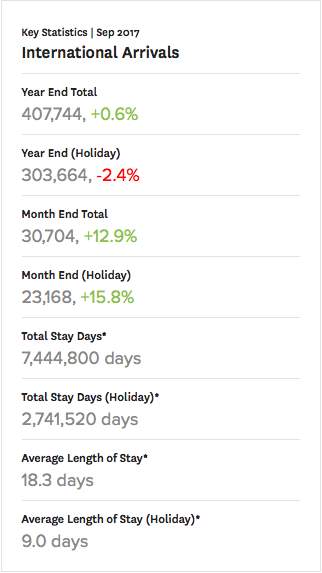
Figure 1: International Key Statistics in September 2017
The language barrier is still having over the years, which can be a significant problem in the hospitality industry (Hall, 2014, para. 1). Foreign language in the hospitality industry is needed to support international visitors. The hospitality, travel and tourism industry is a global business. It is covering areas of food services management and hospitality services and hotel both in New Zealand and abroad. The language skills can be helpful for airline crew, tour operator and particularly hotel frontline staff (Using your language skills | TARGETjobs,” n.d., para. 26).
A service in the hospitality sets to provide service to accomplish the customer satisfaction. Customers are seeking for customized and exceptional quality service that can fits on them. The role of foreign language in the delivery of quality service is major in that they are an important tool to make a customer feel at their home, hence drew more brand loyalty and lager cash flows (Torres &Kline, 2013).
A made-to-measure service usually come from business matters that the customer used to. The spoken language is part of it as well.
Of many visitors that travels, it is likely that they may not proficient in the language of the foreign country that they are traveling to. Even though visitors themselves might be uncertain there is little doubt that wherever they go, it is easier to made them to access information by provide language service and warm welcoming, the more likely is after they return to their country and promote the hotel they used to by word of mouth their friends.
Everything that makes the customers’ daily life more convenient like communication, can affect the customers’ needs according to Pulina and Biagi (as cited in Chassapopoulos et al., 2014). If the hotel that customer is staying is not able to provide a good service due to the fact that miss-communication happens frequently, the customer is likely to put negative feedback toward this certain hotel or restaurant. Therefore, the hospitality industry usually adapts themselves to the customers’ preference by provide the multiple languages service in order to support the customers’ needs.
Research Objectives
- To identify an important of hiring foreign speaker staff, who can serve language service to non-English speaker customer in the hotel
- To identify benefit of hiring foreign speaker staff work in frontline position in the hotel
- To identify a satisfaction of hiring or working with foreign speaker staff in the hotel from participations’ experiences
Research Questions
- How important is it to have foreign speaker staff who can serve language service to non-English speaker customer in the hotel?
- What are the benefit to hiring foreign speaker staff in frontline position in the hotel?
- How do managers and receptions satisfied to having foreign staff working in the hotel?
Research Significance
This paper addressed the subject of foreign speaker in frontline staff position under scope the scope of their significance for hotel industry. Language acts an important part of success in hospitality, and has effected the hospitality industry all the time. Hotel have come to realise that foreign language skills can be utilise in the industry to assist the International visitors, communicate with non-English speaking staff. The data presented herewith derives from a qualitative and quantitative research that target managers and frontline staff especially receptions of the hotel operating in Queenstown, New Zealand.
Foreign speaker staff offers a wealth of benefits for the hotel that extend beyond more language acquisition. This paper aims to identify an importance and advantages of hiring staff who can speak their own language to communicate with non-English speaker customers.
Key Words: Applied foreign languages, bilingual, multilingual, international staff, front office staff, customer satisfaction, benefit of hotel
Literary Review
Review of research literary focuses on an objective review of the literature related to the hotel industry. Literary review will help to further enhance the further research of emission of Queenstown and its hospitality.
What is foreign language?
From Wikipedia, a foreign language is generally from another country. Also, it is not a language spoken in the native country of the person referred to. For example, an English speaker live in China, it can say that Chinese is a foreign language to her or him. These two characterisations do not entirely possible meaning, nevertheless, and the definition is sometime applied in the way that are differently factually inaccurate or misleading. Some people learn more than one language when they were born or form they were young – often called a bilingual or a multilingual. These people can be said to have two, there or more mother language: neither language is foreign to that people, even if one language is a foreign language for the plenty majority of the people in their birth country. For instance, people learn English form their English parents and Chinese at school in China can speak both English and Chinese, but neither is a foreign language to them. This is normal in countries such as Canada, India, or South Africa as these countries having multiple official languages (Foreign language, n.d., para. 1-2)
What is Queenstown?
One of popular visitor destinations in New Zealand (Queenstown | New Zealand, n.d., para. 1). It is also Known as ” Global Adventure Capital”, rated as one of the worlds’ distinguished holiday spots (Queenstown – Tourism New Zealand Media, n.d., para.1).
Queenstown or Tāhuna in Māori language, is a hotel and resort town in Otago, located in the South-West of New Zealand’s South Island. The town is surrounded by an estuary called Queenstown Bay on Lake Wakatipu, a long thin Z-shaped lake. The Queenstown-Lake District has a land of 8,704.97 square kilometres from 268,021 square kilometres of total New Zealand (Queenstown, n.d., para. 1-2). In 2013, there are 28,224 of population usually live in Queenstown-Lake District. It has increased 22.9 percent or 5,268 people, since 2006 census. New Zealand has more than Queenstown-Lake District more than one percent of Queenstown-Lake District (QuickStats about a place, 2013).
Tourism in Queenstown
Because 220 different attractive activities on offer, Queenstown has never shortage of choices for tourist (Queenstown – Tourism New Zealand Media, n.d., para. 2). In December 2016 compared with December 2016 international visitor arrivals were up to 281,100 from 35,400. China was up 3,300 while India was up 2,900 (International Travel and Migration, 2016). According to International Visitor Arrivals to New Zealand (IVA), a monthly report produced by Stats NZ and supported by Tourism New Zealand, showing the number and characteristics of visitor arrivals that defined as overseas resident arriving in New Zealand for a stay lass than 12 months. Asia countries such as China, Japan, or Republic of Korea is Top 10 in the most international country visit New Zealand. As the figure above shown the number of international visitor arrivals in October 2016 – September 2017. China is the second-largest of New Zealand international tourism market behind Australia, according to tourism New Zealand (China – Tourism New Zealand, n.d., para. 1). During January – March this year, 404,000 Chinese tourists came to New Zealand up seven percent compared with last year. There are three quarters of those came here for holiday. Besides, they chose to expense more money for more independently travel. In 2016, the average of Chinese expense was $4,213 for almost nine-day stay (Bradley, 2017, para. 3)
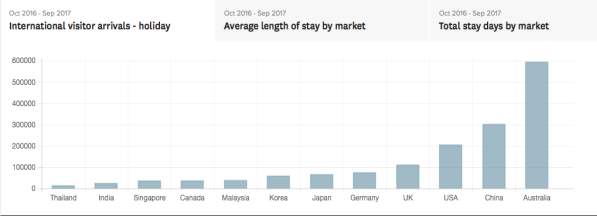
Figure 2: International visitor arrivals – Holiday
From Bryant’s article published on February 18, 2014 talked about Queenstown tourism hit record number in 2013. It is becoming even more of an international visitor magnet with over 1.8 million international visitor nights recorded by Statistics New Zealand – a record high for the resort. Not only international visitors but the number of domestic visitors also rose, with nearly 950,000 recorded as having stayed in the town in 2013. Recorded an increase visitor every month over the previous year from January 2013. Queenstown’s visitor nights increased by 8.4 percent to a record high of 2,756,149.
The Ministry of Business, Innovation and Employment’s (MBIE) shown Queenstown is again the top regional centre in New Zealand for international visitor spending, retaining its 14% market share of all international spend. The growth, both internationally and as a total, was higher than the national growth average of 20% and 11% in order. Tourists from Australia, China and USA indicated higher visitor spend in the Queenstown when compared with other visitor spending in the residue of the country. Queenstown’s total tourist spending reflects a split of 70% international spending and 30% domestic spending, changing from the 65% international and 35% split in 2014 (Scoop New, 2015)
Significance of foreign language in Hospitality industry
Foreign language skills are necessary in today’s global economy. Language efficiency promote people to develop in their careers and helps multinational businesses expend their overseas targets. Moreover, foreign language has an important role in global hospitality industry (Tziora, Giovanis, &Papacharalabous, 2016, p. 94). Try to understand the inbound visitor culture through the language (Zorina et al., 2014) and
Understanding the inbound tourist culture through the language (Zorina et al., 2014 and engaging in an open dialogue that uses both verbal and nonverbal tools to combat stereotypes and misunderstandings support a successful approach of the RATER service quality model factors, namely reliability, assurance, tangibles, empathy and responsiveness (Czaplewski et al., 2002).
Blue and Harun (2003) state that the value in the foreign language skills create three main issues. Firstly, the added of value that foreign languages bring to organisation in common and debatably more so to the hospitality sector. Secondly, the importance of productivity, effective communication, especially in promotional publication at the guest interface. Communication in this part is all important – the first contact constantly influence the guest experience.
Migrant workers are necessary to hotel industry
According to a recent ILO research about “Migrant workers in the international hotel industry” display relationship between the hotel industry and migrant workers. The hotel industry rather needs to hiring migrants because hotels surrounded by the largest and most speedily increasing industries worldwide. They desire a large number of employees. Somehow, based on seasonal the hotel need the flexibility of employment. Due to that, they often hire on temporary contracts, low pay wages and difficult of working conditions – include working during weekends and night-shifts. This is the reason why local population are not interested in hotels (International labour organisation, 2012, para. 3). In addition to, a foreign employee can help to avoid cross-cultural misunderstanding and better representation oneself in an international customer target (Wisestep, n.d., para. 9).
Foreign languages effected hotel guests’ satisfaction
Nowadays, the competition of businesses has been growing in the density and organisation of all sizes and types have increasingly come to understand the importance of good services and customer satisfaction (Wei, 2011, p. 61). According to Pulina and Biagi (as cited in Chassapopoulos et al., 2014) stated that everything that makes the customer’s daily life more liveable, such as communication, can affect the visitor require. The effect of hotel employees’ performance to customer satisfaction identifying among others the importance of friendliness and professionalism as well as the capability to understand customer’ demands and effectively modify any problems (Torres & Kline, 2013), while the overview importance of service quality to customer retaining and satisfaction has been proven (Deng et al., 2013).
Foreign language efficiency helps in welcoming international customers through a greeting in their own language. This makes the customer feel like home, comfortable, and leading to greater customer satisfaction. It also helps in anticipating the special requirements and demands of the customer and effectively fulfilling them.
There have been international researches survey the consumers’ language preferences. Previous study has found that visitors who receive the service in a language other than their first one is less likely to leave tips, give positive feedback, and to recommend the service to other friends. But even more important customers tend to be frightened that they will be incorrectly understood if using a second language, either because they do not trust their language ability level or because they judge some topics of communication as very important (Holmqvist et al, 2014). Grewal et al. (cited in Holmqvist et al., 2014) emotion in control over the service the visitors are receiving affects their overall awareness of the level of service received. Thus, being allowed to obvious require and demands in the mother language relieves unnecessary stress. Language is also found to have a sensational correlation with the customer’ attitudes (Holmqvist et al., 2014) regarding a sense of community with people who share the same language, and an analysis with the organisation that uses it making customer feel at home not away from home (Poon & Low, 2005).
The role of foreign language skills in hotel front office work
Hotel front office employees, known as customer services employees, are responsible for ensuring customer have a pleasing experience at a hotel. Duties generally relates checking in and out service for customer, taking a room booking, and answering phone call or email of any questions that customer may have (Doyle, 2017, para. 1). Communication is a critical for a hotel front office staff. They have to speak with customer who speak English or non-English in person and over the phone or email all day, thus it is very important that they speak clearly and keep in a positive tone. In terms of the important skills in front office, some international studies see “communication by oral skills” is the most important. Additionally, the skills of team work, leadership quality, customer service are also listed among the more important skills in front office. On the other hand, communication by written was rated relatively low (Hai-Yan & Baum, 2006, para. 27).
Travel oversea is a speedily growing activity bring to cross-cultural communication between organisations and customer from different linguistic backgrounds. Consequently, growing global need for front office staff in the hospitality industry that is able to communicate efficiently with customers. As regards the hotel segment, foreign language is a part of the large issue of cross-cultural literacy since many problems could happen due to cross-cultural misunderstanding wherewith most of the customers are international ones (Lewis, 2014, para. 10-13).
In China, academic have undertaken significant work into the study of skills and skills development in regard to hotel work commonly (Zhang et al., 2005) and the context of front office staff specifically. Liu (2002) suggests that people who working in front office should be good-natured, quick-witted, engaging, be good at foreign language and communication. Foreign language skills play an essential role in whacking many problems which could happen due to cross-cultural or communication misunderstanding particularly in the case of front office staff in the hospitality sector (Varma & Patole, 2013, p. 4).
Methodology
Methodology framework
Quantitative and Qualitative data collection through interview process were used to be methodology to complete this research. Interviewing is one of the best quality methods of collecting information from individuals to help the researcher to know in more depth of respondent thinking. There is a variety type of interviews that are used to collect the data. The aims of the interview are to search the opinion, experiences, motivations, and beliefs of individuals respondent on specific information. Also, respondents are relatively easy and quick to manage and have to clarify some certain questions is required and get the feedback directly. Quantitative method was used to collect respondent age group, nationality, and working length. While qualitative method was used to collect deep information about respondent opinion and satisfaction to hiring foreign staff in their front office. Compared with other research method to collect data, interview is the suitable choice for my research topic to analysis the data and collect data from different hotel positions. It is a skill that can be expert by their experience. The data are authentic because the responses are limited to alternatives stated.
Process of interview method
Step 1: Design the interview questions
- Questions have to relate to the importance of foreign staff in front office of the hotel and human resource management
- Questions need to be specific for respondents
- Questions need to be easy to understand and accessible
- Respondents need to expect to read the interview questions
Step 2: Contact with supervisor
- Ask for any help from supervisor for correct the final the interview question.
- Supervisor would support on the research
Step 3: Pilot test
- Checking the interview question are suitable and cover the research topic
- If have some mistake, must be corrected
Step 4: Practice and re-check the question
- Ensure I have practice and familiar with all of the interview questions
- Everything must be ready for the interview
Step 5: Contact the respondent
- Make an appointment for the interview
- Send the interview questions for brief respondent before the real interview
Step 6: Collecting data
Population
There are many types of population were involved with this research topic that are human resource managers, general managers, duty managers, and front office staff especially receptions in the hotels located in Queenstown, New Zealand. The age and length of working were not considered. Some of participations were local or native people and some of them were foreign born. I thought the quality of result is more important than the number of participations. That is the reason why used the interview method and limited only the hotel positions who relevant to the research. The time of interview was happening on the break time of semester which during 2nd – 6th October 2017. Because of participation working condition, most of them prefer the week days for making appointment and also Queenstown at that time is high season for travel so if I go there in the weekends, they will not available and have limited time for interview. For ensure the interview will run through smoothly and successful, I sent the interview questions to them a week before the real time happens.
Pilot test
Pilot testing is an essential first step in a small-trial. The test is taken by a few examinees and then they will comment on the processed of the test (Second language testing, n.d., para. 1). The purpose of a pilot test is getting a feedback and constructing a picture of test validity and reliability. Pilot test results notify possibility, which in order, is it points to modifications needed in the design and planning for a larger trial. This research used the students in HTM303 industry project to took the pilot test. After they finished pilot test, there are many gaps in the interview questions that needed to clarify. Moreover, they gave the suggestion for create more specific questions which can relate to the topic.
Sampling procedure
To obtain data, there are three types of interviews that are a face-to-face interview, phone interview, and email interview were conducted with the hotel human resource managers, the hotel duty managers, the hotel general managers, and receptionists. A face-to-face and phone interview were taking about 25 minutes – 30 minutes, time were flexible depended on situation. All respondents are required to answer the questions in English, no matter they were from Thailand. Before the interview was asked general questions for made them feel relax and comfortable to express their opinion and innovation new ideas. Each interview was used mobile phone recorded. The respondents were introduced the research objective before they answered to ensure the understand the purpose of study.
Specifies the intended sample size
I intended sample size is 15 people in 5 hotels, divided by 3 people that is the human managers and receptionists in each hotel. But in fact, I cannot have done as I planned because the limitation of time and opportuneness. So, I had interview 13 people that had an extra at general managers and duty managers in 8 hotels, both in town and out of town.
Data Collection methods
Interview
An interview is the verbal conversation between two people that are interviewer and interviewee with the objective of data collecting relevant the aim of the study (Kumar, 2014, slide 2). The structured types of research interviews are, principally, verbally managed questionnaires, in which a list of questions are asked were set in advance, with little or no differentiation and with no boundary for follow-up questions to responsiveness that allow further elaboration (Gill, Stewart, Treasure, & Chadwick, 2008, p. 291). In a structured interview, the interviewer asks a standard set of questions (Leedy and Ormrod, 2001). Face-to-face interviews have an obvious advantage of allowing the researcher to establish harmony with participants. These interviews effect highest response rates in research survey (Spinter, n.d., para. 1). They also permit the researcher to define unclear answers and when reasonable, apply follow-up information (Leedy and Ormrod, 2001). While telephone interviews are spending less time and less expensive than a face-to-face interview and the researcher can access to anyone in the world who has a telephone. Disadvantages of telephone interview are the response rates are not as much as the face-to-face interview but considerably higher than the email interview (Data collection methods, n.d., para. 6-7). When designing an interview question, it is necessary to ask questions that are likely to affect as much data about the research as possible and also can address the purposes and objectives of the research. In a qualitative interview, proper questions should be open-ended that require more than a yes or no answer. It is often good to start with questions that interviewees can answer easily and then continue to more difficult or sensitive questions. These can help respondents more comfortable to answer, build up more confidence and often generates strongly data that subsequently develops the interview further (Gill, Stewart, Treasure, & Chadwick, 2008, p. 292).
Advantages of data collection methods
- Opportunity to get directly feedback from the participants – easy to clarify
- Length of interview – if the questionnaire is very long, the face-to-face is the best way for getting participation to cooperate.
- Probing complex answer – The interviewer will easy to investigate if the answer that respondent provide is not clear and too brief. These provide the interviewers more flexibility in dealing with unstructured interviews.
- Complete all questionnaires – interviewers will get all questions asked, unlike in email interviews where some questions may miss out or unanswered.
- High participation – Interviewing personal respondent can increase the feasibility of their participation, people participation.
Disadvantage of data collection methods
- Lack of condition of being unknown – Participants are not anonymous in a face-to-face interview and may not be willing to disclose certain data to the researchers.
- Cost – Personal interview are often more expensive than telephone and mail interviews because sometimes interviewers have to go somewhere of get close to interviewees.
- Necessary for call back – When a respondent for interview is not available or cannot reached at the time, a recall has to be assign which result in time spent and extra cost.
- Personal style – The individual of interviewers questioning techniques, style, approach, and manners may affect the participants’ answers.
Data analysis methods
Data analysis is the organising and collecting of data which a researcher can bring to a conclusion. It allows to answer the research questions, solve any problems, and get the important detailed information (Whiting, n.d.). Because of this research focused more on qualitative data so to some qualitative data analysis will get more in-depth interview detailed information. When launching on a qualitative journey, we have to be prepared to work in a lightly more intuitive. How the interviewer is to manage document the contents of the respondents’ interaction is an important issue. Blair (2016) stated that there are several methods to analyse the interview method, each with pros and cons. The best way is choosing the most complete and most time intensive analyse method. There are three mains method used to analyse the data.
Thematic content analysis is the most general method that used in the interview research. It intends to look for common patterns across a set of data (3 Straightforward Methods for Analysing Qualitative Interview Data – Thesis Writing & Dissertation, n.d., para. 6). Following these step:
- Reading and re-reading for get familiar with the data.
- Searching for themes for the same meaning of answers.
- Reviewing themes to ensure it fit with the data.
- Defining and set the name of themes.
- Creating a harmonic explanation that includes quotes from the interviewees.
Narrative analysis is occurring when one or two or more speakers involve in sharing an opinion and experience (RWJF, n.d., para. 1). It can follow these steps:
- Gathering the stories.
- Assay each story and look for in-depth information and meanings.
- Comparing the different stories – look for interpretations the meaning.
- Rewriting a new story that connects the previous ones within a chronological sequence (Ollerenshaw & Creswell, 2002).
A deductive approach is a quick and easy approach, but it commonly can only be used when you are not seeking new understanding and in more depth data (3 Straightforward Methods for Analysing Qualitative Interview Data – Thesis Writing & Dissertation, n.d., para. 8).
Ethical considerations
This is an important procedure for interviews that should laid out in writing, and are clearly informed to interviewees before the interview. In conducting the research, there are many ethical that used to considered.
- To protect human participants.
- To examine specific research activities and project for their ethical soundness, looking at issue such as the management of risk and the process of informed consent.
- The interviewees have to be happy with the location and appointment of interview.
- The safety of interviewee should be aware when undertaking an interview. Also, participants in research should join by willing.
- All information of personal identities must be concern for confidentiality both in the interview procedure and in the future report.
- Permission from interviewees for recorded on phone or in written. If possible, interviewees should give their assent in writing. If the material is to be preserved as a public resource and published, then permission will need to be clearly given.
Research Results
The interview contained repeated references to the importance of hiring foreign speaker in frontline position in the hotel industry and through the interview from 13 employees in a different hotel. I have asked both of closed-end and opened-ends questions. For closed-end questions are about normal information about participations that shown below.
Question 1: What is your nationality?
Queenstown is a town which employee are from multi-country around. During collecting data found that most number of people who work in hotel industry are from Asia.
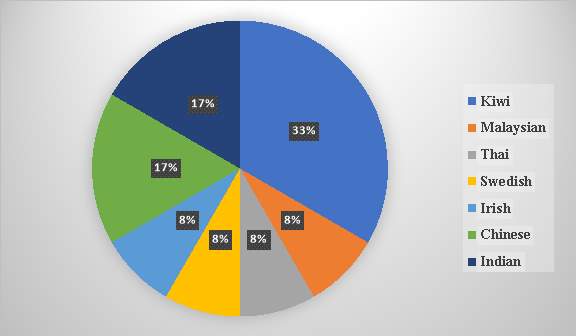
Figure 3: Count of participations’ nationality
The findings in figure 1 indicate that 34% of the participations are Kiwi. Surprisingly, all of them are came from North Island such as Hamilton, New Plymouth, and Wellington. Chinese and Indian are the second number of participants which reaching 17%. Irish, Swedish, Thai, and Malaysian are the same number which is 8%. From this chart demonstrate that the total number of Asian which is Chinese, Thai, and Malaysian at 33% are approximately to the number of New Zealand people.
Question 2: What is your age?
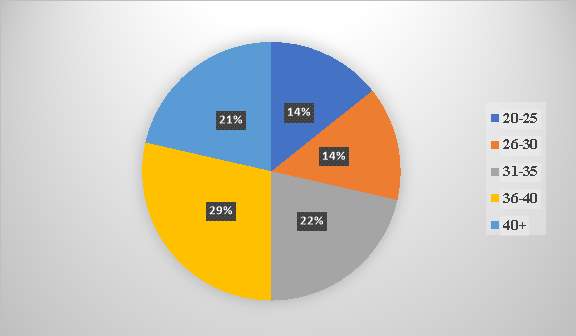
Figure 4: Count of age frequency
The thing found from the result that people usually start working full-time job in hotel industry form 20 years old.
As you can see in the above chart, 29% of participations are from the age of 36-40. The ages of 20-25 and 26-30 are the same number which is 14%. 21% to 31-35 and over than 40, reaching 22%. It seems the average of age group of employee in hotel industry is 31-40.
Question 3: How long you have been working in hotel industry?
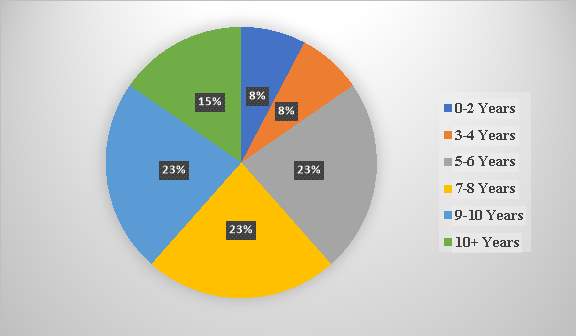
Figure 5: Count of participations’ working length
From following figure shown that almost 75% of participations have been working over 5 years, by separately, 23% to 5-6 years, 23% to 7-8 years, and 23% to 9-10 years. 8% in 0-2 years and 3-4 years was very similar for 0-2 years, at 8%. Working over than 10 years was reaching 15%. Asking some of the participants about the number of years that they have been working, the people who are form Asia said that this hotel they are working at this moment is not the first hotel but they had work around 2-3 hotels before depending on salary and working visa condition of employment in that hotel.
Question 4: What is your position at this moment?
This research focus on the managers and frontline staff especially reception. Only two reception that had opportunity to interviewed because this is high season of travel in Queenstown. Most of them was very busy with service customer.
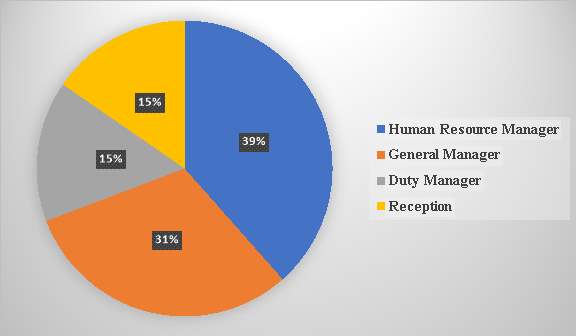
Figure 6: Count of participations’ working position
The data in figure 4 shown that human resource manager captures the largest proportion of the all positions with 51% while duty manager and reception hold the smallest proportion with 12%. The general manager has 4 people that is approximatively 25%. The human resource manager is the person who was familiar with recruitment and selection process of employment that the reason why interviewed human resource manager was the largest proportion.
Question 5: How many foreign speaker staff are working in your hotel?
This question counted only the staff that can speak over than two languages – included their mother language and English. The staff who use English to be main language did not count.
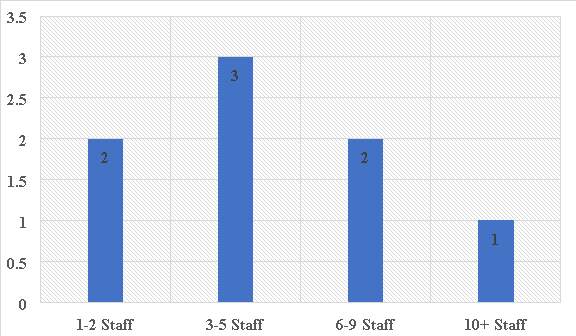
Figure 7: Count of foreign speaker in participations’ hotel
There are three hotels from total that hiring 3-5 foreign speaker staff in their hotels that is the largest proportion. Two hotels hiring foreigners at least one staff in hotel, also two hotels hiring foreigners around 6-9 staff. While one big hotel that had over than 10 staff.
After the following part, I had changed from closed-end to opened-end questions for bring up responses’ opinion on hiring or working with foreign speaker staff. This past would like to find the answer to figure out the research questions.
Question 6: Are you likely to hiring foreign speaker staff in your hotel?
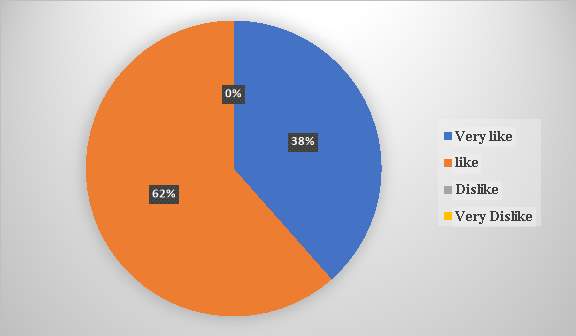
Figure 8: Count of participations’ perspective to hiring foreign staff
From 13 participations, 38% are very welcoming to hiring foreign speaker staff in their hotel. Three of them said it is very important to hiring foreigner staff because the hotel industry is becoming International and the number of visitor in Queenstown has increasing over the years.
Thus, the hotel should have the foreign speaker staff for serving international visitors. Also, they have multiple advantages as it helps in bridging the communication gaps between us and customer and bring about a greater difference in interpret and communication. One manager stated business skill plus foreign language skill create more value for employee in workplace. They can understand what non-English speaker customer needs. One more reason why they are likely to hiring foreign staff is recruiting skilled of foreign staff allow the hotel become more efficient and growing their business.
Foreign staff employed in New Zealand are working longer hours and longer contract than Kiwi recruits because they would like to have money to support their living cost while they stay here. Almost 70% of total participations thought hiring foreign speaker staff is good but it is not effect much on their hotel. Two human resource managers said if the hotel have foreign staff will be good but even they do not have their hotel still have many customers because the target market of their hotel is backpackers that usually from Australia and UK so both country speak English.
“Not often we have Asian customer but they usually prefer over than 3 stars hotel, so we do not need to hire many foreign staff”. One general manager said hiring foreign staff is effecting both internal and external factor of the hotel. For internal factor, it has a problem of language and cultural barrier between employee-college and employee-organization.
Of course, external factor is good feedbacks form customer because we provide them a staff service language so they can communicate with our foreign staff anytime. On the other hand, all of participations said that the foreigner that they want to hire most is Chinese because the number of Chinese tourists visit Queenstown are rapidly growing and also most of them cannot speak English. Thus, for achieve their needs, the hotel should provide language service for them.
Question 7: What are the benefit to hiring foreign speaker staff in your hotel?
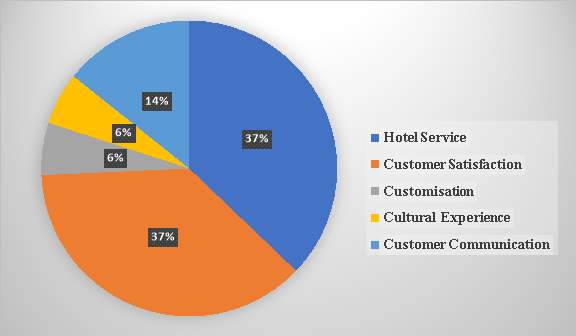
Figure 9: Count of benefit to hiring foreign staff
The finding in figure7 indicate the participations mention on Improve hotel service and customer satisfaction to 37%. One of human resource managers said the income has been improved almost the world and the cost for people to travel another world became cheaper, that is important to make sure the hotel have a huge range to serving customers. Meanwhile, if the hotel can communicate with customer by their mother language which may improve their satisfaction and communication. Four participations agreed with hiring foreign speaker staff can raise service value and customer satisfaction. They can communication with the same language. Decreasing communicate misunderstanding.
14% to increasing customer communication. The hotel was able to increase the level of service provide for their guest when the hotel has ability to communicate with them in more depth and able not only meet guest requirements but also continue hotel level of service going above and beyond expectation. Two receptions said that customer usually prefer to talk with staff who speak same language with them. The skill enables them to break down language barrier and customer also feel more confident and comfortable.
Improving customisation and customers’ cultural experience got the smallest proportion at 6% each. “We are able to customise menus, welcome cards, or signs when we have the team member who able to translate and we can ensure certain team members on standby when there is a language barrier” one duty manager said (Emanuel, personal interview, October 3, 2017). One of general manager stated foreigner staff have a multiple knowledge on their culture and language so can put them to practical use. Furthermore, company can expand the horizon. When guests arrive the hotel, they will happy if the hotel provide warm welcoming environment as their own countries do. Hiring foreigner staff who not only speak some other language but also have unique insights into different cultures would help create a marvellous customer experience. Hotel relationship and customer has stronger than before.
Question 8: How satisfied are hiring or working with foreign speaker staff?
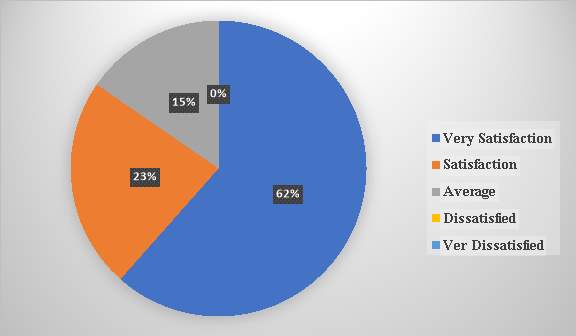
Figure 10: Count of participations’ satisfaction to hiring or working with foreign speaker staff
In general, the respondents are completely satisfied their foreign speaker staff (65%). Four of them said that to hire foreign staff, the hotel will have no limitation for employees that they do not worry about language barrier between organisation and clients. The Hotel manager said that cause the hotel can learn more diversities and can get more multi culture customer and some of customer do not know how to communicate with the single language staff so we can provide the free translation at the working place. One of the participation said from the hotel data gathering, customer prefer multiple language staff to support them while they stay in the hotel so having foreign speaker staff responsible well in this section. Moreover, they are very useful for the hotel that usually have Asian customer especially Chinese, South Korean, and Thai. 23% said they partially satisfied of foreign speaker staff performance. All of them mention that many positive feedbacks from customers that they can serve warmly service to customer. Also, provide them clearly information through the same language. While 11% give average in this question. “I cannot say they done completely their job because many positive feedbacks from customer is not come from only foreign staff but from Native speaker as well” One of participation said (Baloop, personal interview, October 3, 2017).
Discussion and Conclusion
Findings and discussion
Based on the findings, the vast majority of the members of frontline staff in the sample hotels are foreigners that shown in figure2 (66% foreign born). Of the 8 hotels studied, all had at least one member of staff in the frontline office capable of speaking another language other English, the majority of which had hired at least 3-5 bilingual staff, or multilingual persons in their work force. This may be a reflection of the increasing globalization of tourism with a corresponding increase in peoples with the relevant communication abilities to meet the service demand of these tourists. Besides, tourists are an awareness of destination and classify of cultures, sites, and relaxation activities to visit overseas (The Asian Entrepreneur Authors & Contributors, 2016, para. 16). Perhaps tellingly the majority of foreign workers in the hotel sector are from Public of China in correlation with the increase of tourists of Mandarin Chinese speaking origin, according to information in tourism New Zealand mention that China is the second-largest of New Zealand international tourism market within 400,000 travellers over the past few years. Moreover, there are Chinese above 26 million are intensely considering New Zealand to be their holiday destination (China – Tourism New Zealand, n.d., para. 1). This may also be a side effect of general shortage of manpower in the hotel service industry as research result shown the hotel managers prefer to Chinese because the number of Chinese tourists visit Queenstown are rapidly growing and also most of them cannot speak English. Thus, for achieve their needs, the hotel should provide language service for customer still feel at home (Poon & Low, 2005).
Most members staff were experienced workers with the majority having at least 5 years or more of work experience (75% of respondents regardless of nationality). Many foreign workers start working on a part-time job in hotel industry with they were studying for collecting their work experience and their years of experience is average 2 years (Shown in figure 4). There is a preference of human resource management to hire foreigner because they can work without working condition (International labour organisation, 2012, para. 3) and help customers’ cultures understanding (Wisestep, n.d., para. 9).
As in the research result, foreign workers bring a lot of benefit to the hotel especially customer satisfaction can raise service value and increase customer communication with the hotels because they can communicate with foreign staff in more depth and able to understand customer requirement. They can communication with the same language. Decreasing communicate misunderstanding from language barrier (Lewis, 2014, para. 10-13). Foreigner staff have multiple culture knowledge so they can put the business more expender in the industry market and against other hotel competitors. In the other hand, benefits of hiring foreign staff is less culture shock for tourists when better communication. Every traveller anticipates that when they visit a foreign country worldwide, it will different from their home (Morris, 2015, para. 1).
A large proportion of the hotel’s workforce works ‘behind the scenes’, the majority of which is involved in human resource management. Job positions of foreign workers, some of the proportion of management jobs held by foreign workers (shown in figure 5). This may likely be an indirect correlation to the front office management of tourists whereby these workers were later promoted to higher management positions or transferred to different departments.
Shifting perceptions of the hiring of foreign born workers
Of the members of staff interviewed most expressed satisfaction in working within a multinational workforce with 85% of respondents being satisfied, or very satisfied to work with their foreign colleagues. The hotel will not have limitation for foreign employee who can deal with international customer. The hotel can get more multiple culture (Torres & Kline, 2013) and customer also prefer the hotel have the staff who can provide language service for them. All respondents had no qualms about the hiring of foreign staff with all giving a positive response (100% completely interested or interested).
There is in fact a general preference amongst the hotel managers interviewed to hire international workers (85% of satisfaction by separately 62% completely satisfied, 23% to somewhat satisfied with their current foreign staff that shown in figure 9). All 85% of respondents mention that there are a lot of positive feedbacks and review from customers on social media that they can serve warmly service to customer. Also, provide them clearly information through the same language. On the other hand, 11% put average of satisfaction from foreign staff because in their hotel have a lot of native speaker staff much more than foreign speaker staff that they work properly as well.
As they are generally perceived to be diligent in their work ethics and more willing to accept longer work hours (International labour organisation, 2012, para. 3). This general preference may not be specifically related to the management’s perception on reacting to the growing demands of a multilingual service. A proportion of the management has acknowledged that a greater diversity of the workforce provides the benefit of better cultural understanding not just between the customer base but also amongst the work team. Though, a small percentage of managers has expressed that they still do not understand all the feedback from their international customer base in spite of their multiple cultural workforces.
Conclusion
In today’s global business, it is very essential to be able to respond to the requirements of the customer. Among the most demand customer service needs is to offer multiple language service support for them while they stay in the hotels, as for they are walking into your front office or calling you on the telephone. While a lot of New Zealand-based business operations might think that English language is adequate, they would be surprised that nowadays there are other languages customer prefer in their service.
Foreign language in the hotel industry is requires while communication in the organisation and between customer. As International traveller has been increasing all around the world, meanwhile increasing the necessity to hire foreigner employee as well. Language barriers have been mostly seen during professional situations and speaking communication. Baloop, duty manager of Loft hotel, said that it is important for hotel to have staff who can communicate with Chinese customer with Mandarin. By understanding Chinese customers require directly, the staff will be able to better service the customer.
There is a general trend amongst hotel management to hire foreign workers. This may or may not be directly related to the growing demands of a multilingual service based tourist sector. Though indirectly there is an obvious benefit, as the experience of the international tourist can be more wholesome when there is greater understanding through better communication with members of staff. A multinational work force also allows the provision of essential feedback to the delivery of a service that is better tailored to the cultural and language backgrounds to the differing nationalities of the tourist.
Limitations of the study
Even though I have done the research and verified the answer, but there were some limitations. This study was conducted only in a small number of people who were directly involved with the research objectives, and took a few of the sample international studies. It also had time limitation of interview in each participation. Consequently, in order to encourage the results of larger groups, research should involve more hotel managers and front office staff in Queenstown. Due to the time limitations and the stress in the workplace of frontline staff, the results may be affected to a certain boundary. Additionally, quantitative research requires good duration of appointment and close communication between researcher and participations. Since some unforeseen circumstances, the time for doing the research is very limited, and I tried my best to get the best research results. Communication and cross-cultural misunderstandings may interrupt participants from joining the interview process with interaction, motivation, and interested.
Suggestion for future research
It is suggested that future research could focus on benefit of having foreign staff in other part positions in the hotel. Moreover, could compare productivity and staff performance based on customer satisfaction between native staff and foreign staff.
Future research can target a larger size of sample, because the number of hotel in Queenstown is increasingly growing. Furthermore, if there is a little limitation on time and cost, data collection could be undertaken in several cities using cluster sampling. In this way, the representativeness of the sample will be vastly increased.
Future research can target on other big cities that have increasingly of international tourist to identify more importance of having foreign speaker staff for service customer.
Try to use more secondary data, combine questionnaire and interview for get both international tourists and hotel hosts, compare these kinds of data will make data collecting in this paper more effective.
References
International Travel and Migration: February 2017. (2017, February 21). Retrieved from http://www.stats.govt.nz/browse_for_stats/population/Migration/IntTravelAndMigration_HOTPFeb17.aspx
Queenstown – Lonely Planet. (n.d.). Retrieved from http://www.lonelyplanet.com/new-zealand/queenstown-and-wanaka/queenstown
Bryant, G. (2014, February 17). Queenstown tourism hits record numbers | Stuff.co.nz. Retrieved from http://www.stuff.co.nz/southland-times/news/9732524/Queenstown-tourism-hits-record-numbers
Hall, S.H. (2014, December 4). Breaking Down the Language Barrier with Hospitality Translation | Smartling. Retrieved from https://www.smartling.com/blog/breaking-down-the-language-barrier-with-hospitality-translation/
Using your language skills | TARGETjobs. (n.d.). Retrieved from https://targetjobs.co.uk/careers-advice/career-planning/435032-using-your-language-skills
Torres, E. N. & Kline, S. (2013). From customer satisfaction to customer delight: Creating a new standard of service for the hotel industry. International Journal of Contemporary Hospitality Management, 25(5), 642-659.
Chasapopoulos, P., den Butter, F. A. G. & Mihaylov, E. (2014). Demand for tourism in Greece: a panel data analysis using the gravity model. International Journal of Tourism Policy, 5(3), 173-191.
Foreign Language. (n.d.). In Wikipedia. Retrieved September 1, 2017, from https://en.wikipedia.org/wiki/Foreign_language
Queenstown | New Zealand. (n.d.). Retrieved from https://www.newzealand.com/int/queenstown/
Queenstown – Tourism New Zealand Media. (n.d.). Retrieved from http://media.newzealand.com/en/story-ideas/new-zealand-regions/queenstown/
Queenstown. In Wikipedia. Retrieved on September 1, 2017, from https://en.wikipedia.org/wiki/Queenstown,_New_Zealand
QuickStats about a place. (2013). Retrieved from http://www.stats.govt.nz/Census/2013-census/profile-and-summary-reports/quickstats-about-a-place.aspx?request_value=15000&tabname=
China – Tourism New Zealand. (n.d.). Retrieved from http://www.tourismnewzealand.com/markets-stats/markets/china/
Bradley, G. (2017, May 1). Chinese tourists love NZ’s fresh air but not our hotel charges – NZ Herald. Retrieved from http://www.nzherald.co.nz/business/news/article.cfm?c_id=3&objectid=11848183
International Visitor Arrivals to New Zealand. (n.d.). Retrieved from http://www.stats.govt.nz/browse_for_stats/population/Migration/iva.aspx
International Travel and Migration. (2016, December). Retrieved from http://www.stats.govt.nz/browse_for_stats/population/Migration/IntTravelAndMigration_HOTPDec16.aspx
Scoop News. (2015, November 25). Queenstown’s international visitor spend surges 25% in 2015. Retrieved from http://www.scoop.co.nz/stories/BU1511/S00858/queenstowns-international-visitor-spend-surges-25-in-2015.htm
McMunn, R. (2017, August 7). 3 Ways Language Training Benefits Your Business. Retrieved from https://www.entrepreneur.com/article/296242
Tziora, N., Giovanis, N., & Papacharalabous, C. (2016). The role of foreign languages in hospitality management. International Journal of Language, Translation and Intercultural Communication, 4(1), 89. doi:10.12681/ijltic.10353
Zorina, N. M., Maslennikova, E. G. & Gazilov, M. G. (2014). The Formation of Intercultural Competence as an Integral Part of Professional Training in the Field of Tourism. World Applied Sciences Journal, 30(MCTT)), 41-42.
Czaplewski, A. J., Olson, E. M. & Slater, S. F. (2002). Applying the RATER model for service success. Marketing Management, 11(1), 14-17.
Blue, G. M., & Harun, M. (2003). Hospitality language as a professional skill. English for specific purposes (Vol. 22, pp. 73–91)
International labour organisation. (2012, July 25). Migrant workers are essential to hotel industry. Retrieved from http://www.ilo.org/global/about-the-ilo/newsroom/news/WCMS_185870/lang–en/index.htm
Wei, Y. (2011). Improving Customer Satisfaction Case: Compass Foreign Language Training Centre, China. Retrieved from https://publications.theseus.fi/bitstream/handle/10024/34102/Wei_Yu.pdf?sequence=1
Wisestep. (n.d.). Top 13 Advantages & Disadvantages of Hiring Foreign Workers – WiseStep. Retrieved from https://content.wisestep.com/top-advantages-disadvantages-hiring-foreign-workers/
Deng, W. J., Yeh, M. L. & Sung, M. L. (2013). A customer satisfaction index model for international tourist hotels: Integrating consumption emotions into the American Customer Satisfaction Index. International Journal of Hospitality Management, 35, 133-140.
Holmqvist, J., Van Vaerenbergh, Y. & Grönroos, C. (2014). Consumer willingness to communicate in a second language: Communication in service settings. Management Decision, 52(5), 950-966.
Poon, W. C. & Lock-Teng Low, K. (2005). Are travellers satisfied with Malaysian hotels? International Journal of Contemporary Hospitality Management, 17(3), 217-227.
Doyle, A. (2017, August 10). Hotel Front Desk / Guest Services Skills List. Retrieved from https://www.thebalance.com/hotel-front-desk-guest-services-skills-list-2062408
Hai-yan, K., & Baum, T. (2006). Skills and work in the hospitality sector.International Journal of Contemporary Hospitality Management, 18(6), 509-518. doi:http://ezproxy.sit.ac.nz:2117/10.1108/09596110610681548
Lewis, J. (2014). Customer Diversity: Providing Great Customer Experience Across Cultures | Provide Support. Retrieved from https://www.providesupport.com/blog/customer-diversity/
Varma, S. & Patole, A. (2013). Foreign Language Proficiency of The Front Office Staff W.R.T. Luxury Hotels in Mumbai – A Managerial Perspective. International Journal of Business Management & Research, 3(4). Retrieved from http://tjprc.org/publishpapers/2-32-1375961553-1.Foreign%20language.full.pdf
Liu, W. (2002), Front Office and Room Management, Higher Education Press, Beijing.
The Asian Entrepreneur Authors & Contributors. (2016, October 26). Globalization’s Impact on Tourism – Asian Entrepreneur. Retrieved from http://www.asianentrepreneur.org/globalization-tourism/
Morris, H. (2015). Culture shock: what surprised you most on your travels? – Telegraph. Retrieved from http://www.telegraph.co.uk/travel/comment/Culture-shock-what-surprised-you-most-on-your-travels/
Second language testing. (n.d.). Pilot Testing and Field Testing | Second Language Testing, Inc. Retrieved from http://www.2lti.com/test-development/pilot-testing-and-field-testing/
Kumar, V. (2014, January 24). Interview method in research. Retrieved from https://www.slideshare.net/VinayKumar49/interview-method-in-research
Leedy, P. & Ormrod, J. (2001). Practical research: Planning and design (7th ed.). Upper Saddle River, NJ: Merrill Prentice Hall. Thousand Oaks: SAGE Publications.
Spinter. (n.d.). Face-to-Face Interview. Retrieved from http://www.spinter.lt/site/en/vidinis/vidmenu/face-to-face-interview
Data Collection Methods. (n.d.). Retrieved from https://people.uwec.edu/piercech/ResearchMethods/Data%20collection%20methods/DATA%20COLLECTION%20METHODS.htm
Gill, P., Stewart, K., Treasure, E., & Chadwick, B. (2008). Methods of data collection in qualitative research: interviews and focus groups. BDJ, 204(6), 291-295. doi:10.1038/bdj.2008.192
Blair, L. (2016). Collecting and Analyzing Data. Writing a Graduate Thesis or Dissertation, 85-96. doi:10.1007/978-94-6300-426-8_8
Whiting, B. (n.d.). Data Analysis: Techniques & Methods – Video & Lesson Transcript | Study.com. Retrieved from http://study.com/academy/lesson/data-analysis-techniques-methods.html
3 Straightforward Methods for Analyzing Qualitative Interview Data – Thesis Writing & Dissertation | Academic Writing Help for Those Feeling Stuck. (n.d.). Retrieved from http://unstick.me/3-straightforward-methods-for-analyzing-qualitative-interview-data/
RWJF. (n.d.). Qualitative Research Guidelines Project | Narrative Analysis | Narrative Analysis. Retrieved from http://www.qualres.org/HomeNarr-3823.html
Ollerenshaw, J. A., & Creswell, J. W. (2002). Narrative Research: A Comparison of Two Restorying Data Analysis Approaches. Qualitative Inquiry, 8(3), 329-347. doi:10.1177/10778004008003008
Cite This Work
To export a reference to this article please select a referencing stye below:
Related Services
View allRelated Content
All TagsContent relating to: "Hospitality"
Hospitality refers to the hosting and entertainment of guests or visitors. The Hospitality sector includes businesses such as hotels, B&Bs;, restaurants, cafes, bars, and other businesses relating to travel, tourism, and entertainment.
Related Articles
DMCA / Removal Request
If you are the original writer of this dissertation and no longer wish to have your work published on the UKDiss.com website then please:




